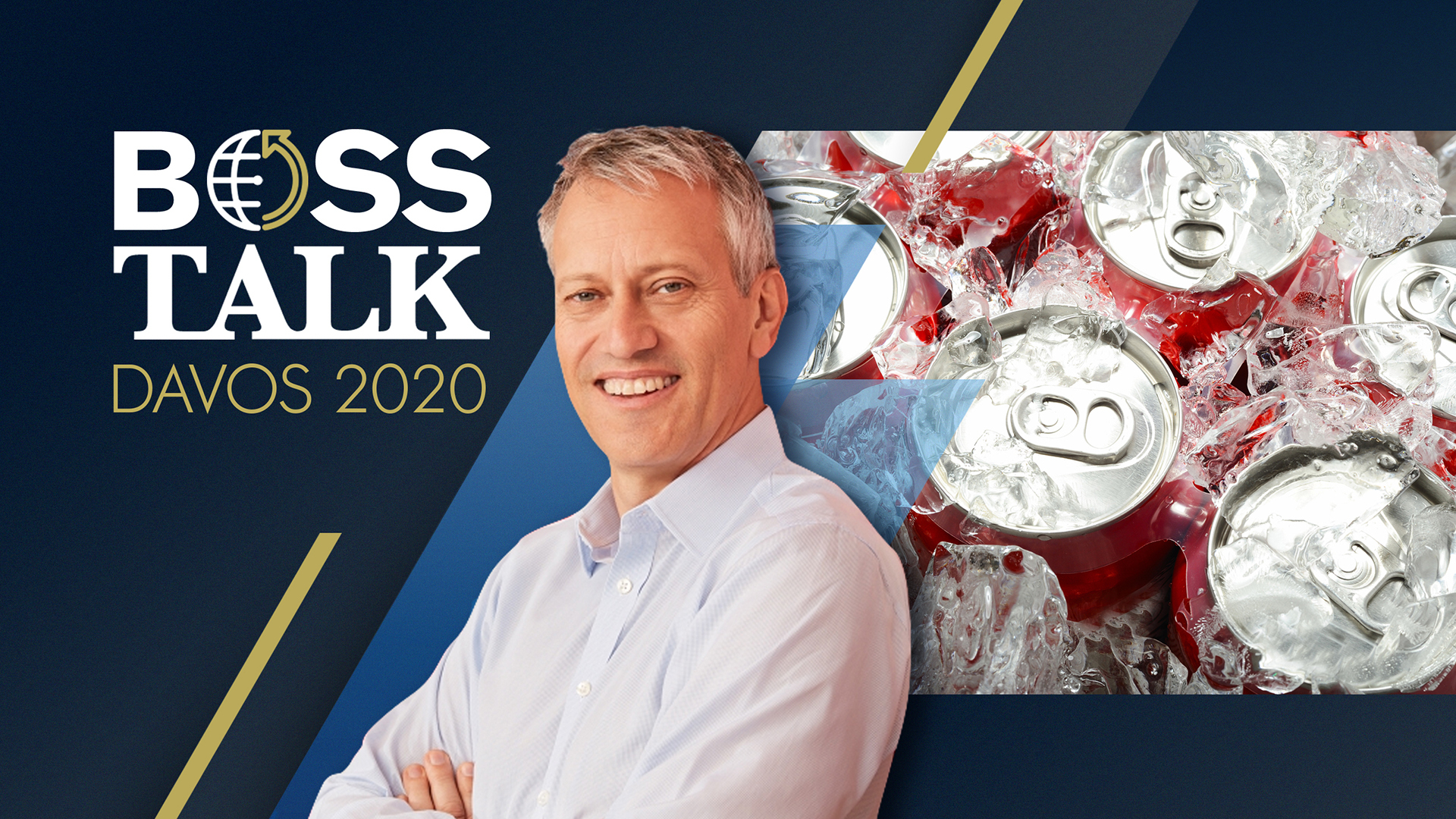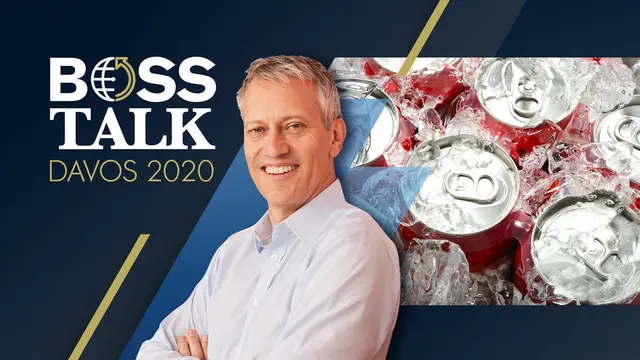02:37

Coca-Cola has a global reach, but its beverages are produced locally. The company is very focused on curbing its pollution and carbon emissions, and has set a goal of reducing its carbon footprint by 25 percent by 2030, according to its president and CEO, James Quincey.
Tackling climate change through recycling
Over the last few years, the beverage giant has vowed to make its operations more environmentally friendly. The company wants to collect and recycle every can or bottle Coca-Cola sells worldwide by 2030. Additionally, it wants to roll out completely recyclable packaging and use 50 percent recycled material in its bottles by 2030.
There has long been a debate over plastic use. Quincey emphasized that the key is to transform waste into value through clear plastic categorization. "We're investing currently in Europe to remove a lot of the single-use plastics that are very hard to recycle."
He's also eyeing the broader picture of shaping a circular economy. "It's not about the problem of plastics; it is to make sure they're zero waste and to create a circular economy. So, what you're gonna see is a very differentiated segment in strategy of focus on the circular economy, which is producing high-value plastics and removing low-value hard to recycle."
**Refreshing 2020 **
There has been widespread worry over 2020, given the sluggish global economy. But Quincey is among those who are optimistic. He wants to "refresh" the world this year.
"There have been forecasts out there that 2020 will be a little softer than 2019. That was true of 2019 versus 2018 too. But we managed to have a pretty robust year and continue to grow the company. So, we're focused on what we can control, what we can do, and try in a very simple way to refresh everyone out there," Quincey said.
Creating a stakeholder society
During this year's World Economic Forum at Davos, there was a lot of discussion about Capitalism 3.0, especially on how to marry societal value with shareholder value. Quincey said the company was founded on the idea that "there couldn't be a vibrant business without a vibrant (stakeholder)."
"We've always believed that it's important to make all stakeholders relative to the company do well, which includes the employees. Other people work in the value chain with us, the societies and the communities in the countries, and that's why we have a franchise business. Then there are local jobs in all the countries we operate. So, here's a business that creates a stakeholder society. And that's been our guiding idea from over a hundred years," Quincey said.
He emphasized that the company's purpose is to refresh the world and make a positive difference to the community, and this is key in its long term development strategy.
**Foray into coffee business via Costa acquisition **
More than a year ago, Coca-Cola completed the acquisition of British coffee chain Costa with a 4.9 billion U.S. dollar transaction. Costa has operations in more than 30 countries and gives Coca-Cola a significant footprint in the global coffee business.
Quincey said he sees great opportunities for value creation through the combination of Costa's capabilities and Coca-Cola's marketing expertise and global reach. He said his vision is to use Costa to expand its portfolio in the growing coffee category.
"We operated in lots of different locations in a traditional commercial way. And this is starting to take off and expand, and we're happy with the progress we make," Quincey commented on the latest updates of the acquisition.
Catering to evolving consumer trends
As there's a growing demand for healthier and more bespoke lifestyles among consumers, many food companies have come up with diversified marketing strategies which include using premium ingredients and customization.
Quincey said Coca-Cola customers have a wide variety of products to choose from to suit their different needs throughout the day.
"We got a full portfolio across all the different categories. On premiumization, also making them more natural, like providing more subtle, more engaging flavors, offering the standard versions and the zero sugar and the no-calorie versions, we really provide a portfolio that consumers want."
Talking about fierce competition from rivals, Quincey said there are massive opportunities in the beverage industry. "I attach probabilities to things," he said.
 简体中文
简体中文

